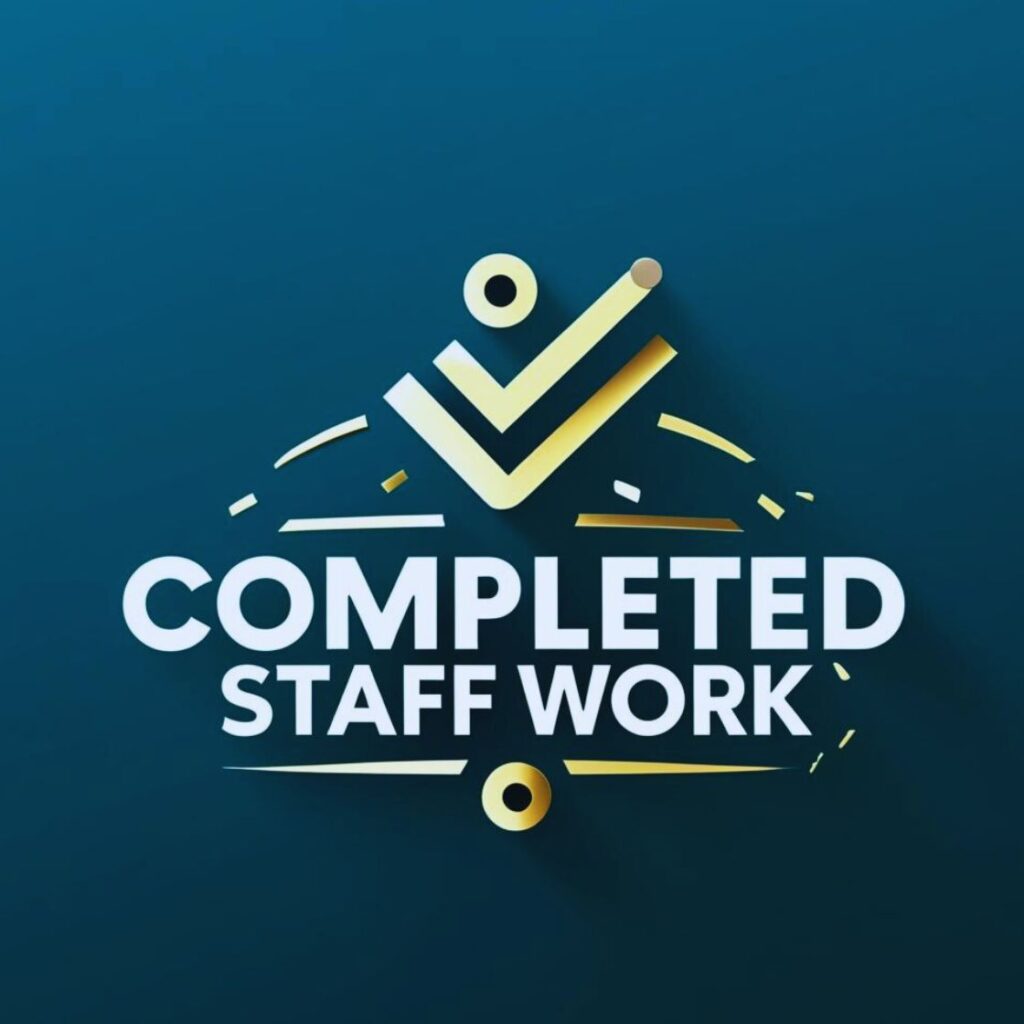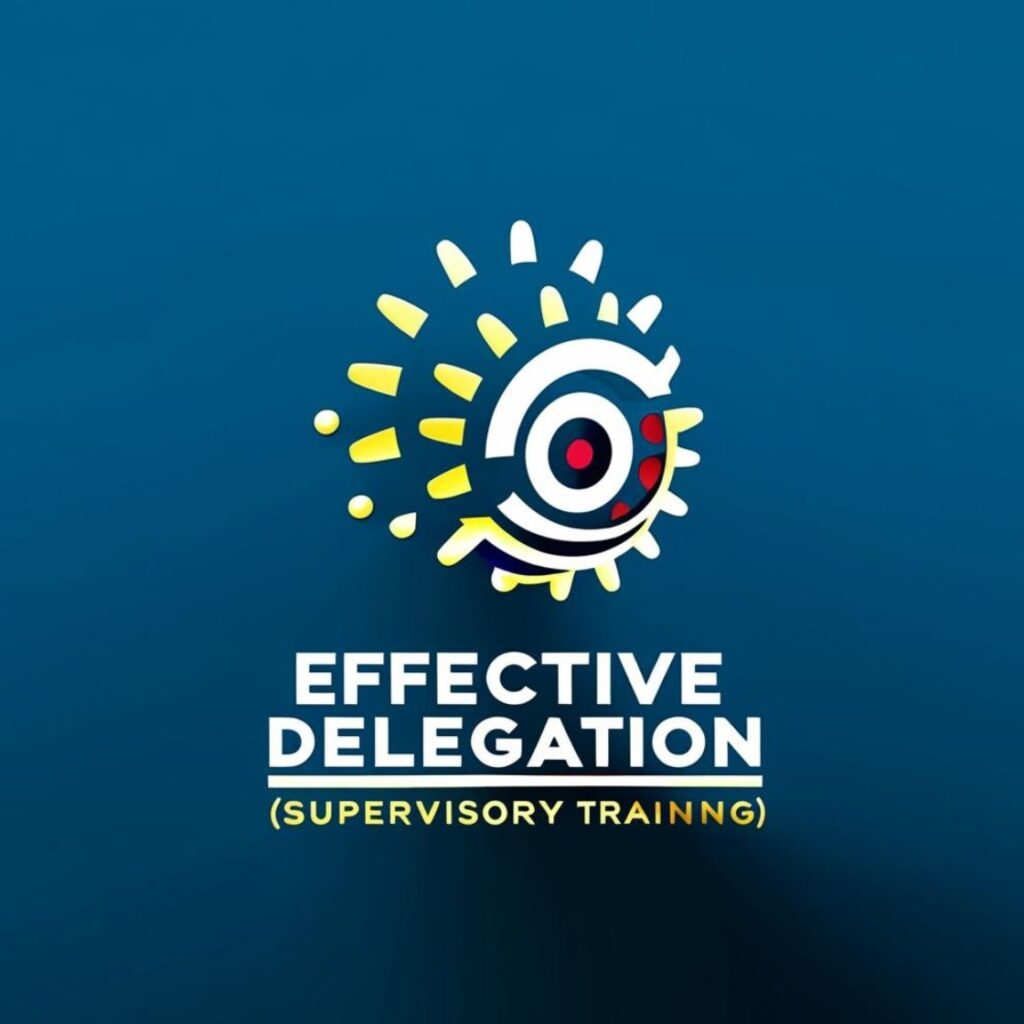If you are looking for the most critical skills of supervisors, this article is for you. These skills will help supervisors improve performance and the performance of their teams. As a supervisor, you will help increase revenue, wow customers, and increase employee retention.
The world is fast evolving. As a result, supervisory skills that were required in the past may no longer be relevant today. So go beyond the traditional supervisory skills of planning, organizing, leading, and controlling.
Many supervisors get promoted before they get trained. Many organizations waste opportunities when they hire supervisors who cannot deliver and lead. You don’t have to be that kind of supervisor.
You can map your path. You develop essential supervisory skills that will help you succeed.
If you are looking for opportunities to build the skills of your supervisors, go to supervisory training.
What are supervisory skills?
Supervisory skills are learned abilities supervisors employ to achieve targeted measurable results assigned to them by their organizations. They use their skills by identifying the vital behaviors that bring the greatest results. Supervisory skills are enablers of performance.
Examples of supervisory skills are managing conflict, motivating employees, delegation, coaching, communication, decision-making, and problem-solving.
Supervisory skills are learned abilities. This is good news for new supervisors. Because even if you do not have all the supervisory skills necessary to become great at what you do, you can learn them on the job.

If you are a high-potential employee looking forward to getting promoted to a supervisory position soon, now is the time to go to school with the winners. Begin by finding opportunities to learn and practice the essential skills for supervisors
You do not even need to become a master of a specific skill. You may only need to practice vital behaviors that bring the greatest results.
Organizations can also accelerate skills development by providing supervisory training programs. This works by deliberately targeting essential supervisory skills for the just-in-time need of supervisors.
Supervisors may need different skills depending on their jobs and authority in the organization. Most supervisors fail not for a lack of will but for a lack of skills.
Read: Vital Behaviors: Actions That Bring Extraordinary Results

Crucial Supervisory Skills
Elsewhere, you can find a long list of supervisory skills that you can put in your resume. Though many of those skills get you employed, very few can help you get a promotion.
These skills for successful supervision create value — and anyone who practices these skills can help themselves get ahead.
Two examples of supervisory skills are effective communication and decision-making. Both are also considered meta-skills for these are skills that every leader must possess.
There are many sets of skills in communication. Some jobs may only require employees to be able to express themselves. Others demand that they know how to communicate via email and are proficient in online meetings.
Effective supervisors use a wider set of communication skills. Supervisors lead meetings, give feedback to employees, sell ideas, resolve conflict, delegate tasks, make presentations, and coach employees. All these demand excellent communication skills.
A marketing supervisor and a machine operation supervisor may require different sets of communication skills.
For this reason, it is important for organizations to map out the competencies of supervisors based on their functions in the organization.
Also, by understanding the different skill sets of supervisors, an organization can customize training programs. Learn more about the essential skills for supervisors.
Read: Successful Supervision
Great leadership isn’t an event—it’s a habit. Get actionable leadership habits every Monday and Thursday.
How to Develop Supervisory Skills
You can learn supervisory skills in two ways: through experience and deliberate training.
Learning through experience requires that you are aware of the essential skills. You intentionally practice your target skills and regularly evaluate your performance. You are experimenting, experiencing, and evaluating.
If you do not experiment and evaluate, you are less likely to learn from your experiences.
Learning through deliberate training requires that you look into the skills necessary to be successful in the supervisory job.
You will take account of all your assets, of skills that you can convert when you become a supervisor.
By deliberate training, you will consider a few vital behaviors that demonstrate skills. You do not need to go to a multiple-day training and pray that you’ll remember everything.
The best way to learn is by doing.
You can enroll in an online course and study at your own pace. You can get a coach or a mentor who can guide you. You can buy a book or join a webinar. Focus on one area of training. This is what I mean by deliberate training.
18 Skills for Supervisors
Read the definition of each of these supervisory skills and understand how you can learn each. Identify the vital behaviors which can help you maximize the power use of each skill in your performance as a supervisor.
During the pandemic, and even in the new normal, I saw that many organizations thrive because of these supervisory skills.
Allow me to share a bit of this.

1. Agility
Agility is the ability of a supervisor to draw conclusions, adapt, and succeed in a rapidly changing environment. In a VUCA world, a supervisor must make decisions even though he does not have complete information.
Agility allows supervisors to think and understand quickly. They cannot wait until all facts are in before they make decisions. Because by the time all facts are in, it would be too late.
There was a time when innovation was a special project, not the organization’s core strategy. But now, learning on the fly is a competitive advantage.
In one of my interviews, a manager said that when he learned that an employee tested positive for Covid-19, he at once decided that all employees would work from home the next day. This after he failed to reach their country managers. He ensures that everything gets done.
Read Agility: Think and Act Fast
2. Empathy
Empathy is the supervisor’s ability to emotionally understand how people feel, recognize their pain, celebrate their dreams, and imagine themselves in other people’s shoes. Supervisors can use empathy in dealing with staff and customers.
Empathy goes beyond the ability to understand the feeling of others. As a supervisor, it means that you will factor in the situation of your people. You will choose between productivity and safety when you can do both.
Supervisors must understand what people are feeling now. Some of us are still working from home. And working is not the same as sitting on your chair and doing work.
That’s not how it works.
People are anxious. People don’t know what’s happening and what will happen to them. The situation of every employee is never the same.
This requires supervisors to find out where the employees are coming from. Most of us call this compassionate leadership. To me, is malasakit in practice.
Read: Malasakit: The Filipino Culture of Caring for Others
3. Resilience
Resilience is the ability of supervisors to bounce forward when encountering seemingly insurmountable challenges. Resilience goes beyond our ability to handle stress. It comes with the clear understanding that sometimes we fail, and sometimes we win. That business is a long game; if we persist, we shall eventually win.
As long as we learn from our experiences, we can move forward and make things better.
A resilient supervisor thrives under pressure and drives his team to higher performance.
4. Adaptive Leadership
Adaptive leadership is the ability of supervisors to embrace change, experimentation, and innovation. Supervisors enable employees to adapt to significant change. Instead of waiting and seeing for problems to pass, supervisors consider the “what ifs” and look for ways to handle them. Instead of sticking to old ways of solving problems, they find new ways.
As I mentioned, our government failed us many times during the pandemic. People at the top thought that a military solution could solve Covid-19. So, instead of making medical experts decide, they ask generals to take the lead.
We need military generals for their expertise. But they are not used to bringing diverse groups of people to the table, listening to them, and making decisions that have never been done before. They’ve got to stick to what they’ve been good at, though it does not prevent the virus from spreading.
An adaptive leader knows that there is no single solution. His ability to bring the wisdom of people, make them own the solutions and mobilize them so that significant change happens.
Every supervisor needs to become an adaptive leader.

Core Skills for Supervisors
To perform effectively, supervisors need to develop supervisory skills. Supervisory skills are the expertise or talent supervisors (or managers) need to do a job or task. Supervisory skills also allow managers to lead a team and support the organization’s objectives.
5. Stress Management Skills
Stress management refers to the ability of the supervisor to respond positively to stressful situations in the workplace. It requires supervisors to assess situations and proactively consider actions.
The most crucial supervisory skill is the ability to manage stress at work.
The most challenging stressors for employees are toxic supervisors. For supervisors, employees with wrong attitudes. You can list a hundred more stressors after that, of course.
Stress can be an obstacle or a stepping stone to work success. You cannot make your work stress-free, but you can make it stress-friendly.
Because you are the supervisor, you can create a climate that allows employees to work under pressure. You can avoid unnecessary conflict. You can balance workloads. You can prioritize tasks. You can ensure employees’ safety and wellness.
In training supervisors, developing the ability to manage stress is often the least priority. It is a soft skill, some say. And that is a big mistake. Your ability (or inability) to manage stress directly impacts performance.
6. Time Management
Time management refers to the ability of supervisors to plan and control how much time employees spend on specific activities. Time management helps supervisors to understand the work to be done, the capacity of employees, and the process that will help them get things done.
Supervisors who are effective time managers get things done. They achieve their goals at will and on time. They teach people how to work on tasks that matter most.
You can find thousands of tips on time management. You can download apps that purport to help you become more productive. You have access to these resources.
But using to-do lists, Pomodoro techniques, and productivity apps will not always make you productive. Time management is a strategic skill.
You should understand which 20% percent of your work produces 80% of the results. You need to identify when and how employees are more productive. You must know how to make employees set goals, create time limits, and execute effectively.
Yes, you cannot control the hands of time. But you can choose how you and your people work every hour of the day.
7. Interpersonal Relationships
Building interpersonal relationships refers to supervisors’ ability to bring people together by first focusing on their shared qualities. Supervisors serve as bridges or connectors in the workplace. The quality of interpersonal relations at work can significantly contribute to worker productivity.
To reduce friction, supervisors must develop and maintain trust and positive feelings. They create a climate of harmonious relationships.
You can practice a few vital behaviors to build interpersonal relationships.
Create an environment where people energize each other to work at their best.
Show employees that you are fair and just. You must avoid showing favoritism. You want to show people that you care for them without appearing to pry. You don’t want them to think you are power-tripping and abusing your supervisory powers.
Strike the right note in your personal relations with co-workers.
And if you are new to your job, manage the transition from being a buddy to a boss. Be approachable and friendly, yet fair and firm.
Master Your Soft Skills
Notice that all of these skills are soft skills. That’s because your job has something to do with people. Your technical skills are given. And often, the best supervisors are those who have deliberately improved their soft skills. Find out more.
8. Giving & Receiving Feedback
Providing and receiving feedback is a vital component of the supervisory process. Feedback is an important communication tool to support colleagues and ensure team success.
By providing feedback, supervisors get just-in-time information that may help employees improve productivity and performance. Because of feedback, you can help employees see what they need to know.
Receiving feedback from others provides you with bigger perspectives. It is akin to allowing your co-workers to help you see things. Receiving feedback is active listening.
You can use your giving and receiving feedback skills to leverage your leadership.
9. Leading and Managing a Team
A skillful supervisor ensures that people accomplish their tasks. This requires supervisors to monitor and control the execution closely. Task-oriented supervisors aim to get things done. Some supervisors do not consider themselves team builders and still accomplish their goals.
High team performance, however, requires a skillful team leader. Supervisors lead teams to inspire, equip, and empower people. They articulate the values, vision, and mission of the team.
Excellent supervisors ensure that tasks are done, and people are happy. They are efficient and effective. By developing your team leadership skills, you can help people perform at their best and become ready for new challenges.
10. Managing Conflict
People avoid conflict at work. But conflict is inevitable; conflict happens when people are actively working together. Often, people who want to solve the same problems don’t agree on solutions.
Good managers do not avoid conflict; they manage it. Great managers mine conflict and turn it into collaborative opportunities. There are proven strategies and techniques you can use.
You can develop your conflict management skills through deliberate training.
11. Motivating Employees
Effective supervisors find ways to understand people. Motivation isn’t about the ability to use “inspiring words”. Rather, motivation requires supervisors to be in employees’ shoes. See their dreams. Discover their values. Understand what makes them go to work each day.
You can use your skills in motivating people to make it easy for employees to do what they initially hate. You can sell them the organization’s goals and help them commit to achieving those goals.
Motivation isn’t the same for everyone. But there are common things that people avoid or pursue. Understanding the common motivation of employees is a lever you can use.
Read books on motivation. Find mentors who can share with you their best practices in motivating people. Watch webinars and join motivation workshops. Your ability to motivate people will help you become a good leader.
12. Managing and Evaluating Performance
We manage performance to ensure that we hit our targets every time. We strive to optimize performance and help employees enhance growth and development. set goals, and provide feedback and communication.
We evaluate performance to discover what works and what improvement can be done. Effective supervisors pay attention to behaviors and results to manage and improve performance.
Performance management and evaluation are the employee and supervisor’s shared responsibility.
You can use tools to manage and evaluate performance. But tools won’t be enough. Supervisors need to develop skills to help them solve problems, coach employees, and find growth opportunities.
13. Delegation Skills
Supervisors must delegate effectively to develop employees and ensure they can do what they must do. Achieving the goals of the organization requires many tasks. A supervisor may be able to do each task better than anyone else. But he cannot do them all.
Delegation is a skill that requires you to trust your employees. You will assign a task that must be accomplished that they can do. You delegate so that you can focus on the task that requires your full attention.
Delegation is not just making others do your tasks. You need to prioritize. You need to adjust your communication style based on the tasks’ difficulty and the employee’s experience and expertise. You need to take ownership of the result too.
More importantly, delegation is an opportunity to enable and equip employees. By giving them challenging tasks, you help them grow. Delegation is a skill you need to learn and master.
Read: Best Tips on Effective Delegation.
14. Coaching Skills
There are many kinds of coaches. Coaching is an industry. You can always find a life coach when you are lost and want to find yourself. When you want to improve your results, you can find performance coaches.
Effective supervisors recognize the importance of developing coaching skills.
Coaching is guiding and supporting employees to acquire and develop skills and attitudes that improve performance. Coaching also helps employees eliminate the obstacles that prevent them from achieving their goals.
You need to understand how people develop high performance to develop your coaching skills. You can use job aids and other tools. You can also use a framework like the GROW model to help you coach employees more effectively.
15. Onboarding New Employees
Onboarding is integrating a new employee with your company and its culture. As a supervisor, you will ensure that new hires get the tools and information they need to become a productive member of your organization.
New employees do not need to feel lost and confused during their first 30 days. Companies with a robust onboarding process are more likely to retain and engage employees.
16. Communication Skills
Many companies invest an hour for onboarding. Others do it for a day or two. But strategic companies map out the desired experiences of employees for the first 30 days up to six months.
Of course, relying on the human resources department for onboarding new employees is common. You are too busy to accomplish your tasks. But onboarding new employees is a responsibility you must not ignore. Be hands-on when developing people.
Learn the steps in onboarding new employees.
Your ability to communicate is essential to the achievement of goals. Supervisors disseminate information to employees as a spokesperson for the management and convey employees’ agenda to management. Misunderstanding often happens because of the inability of the supervisors to communicate effectively.
Communication is also essential in building harmonious relationships with co-workers, customers, and suppliers.
Much time is wasted in communicating via Ping-Pong emails. People send emails with unclear intentions, incomplete information, and no call to action. Developing skills in business writing can help you save time, reduce stress, and get things done.
Effective communication can make your meetings more productive too. For example, you can encourage conversations in an efficient, result-oriented team meeting.
Map out how you can improve your communication skills. Study how you can better communicate with your subordinates and produce better work.
Among the essential skills for supervisors, communication requires numerous sets of skills. It is connected to delegation, negotiation, training, motivation, etc. It is always assumed that many supervisors know how to communicate effectively. The assumption is wrong.
17. Making Decisions
You are paid to make decisions. Be good at it because your choices affect employees and your business. You must make consistent decisions and make them as quickly as possible.
Supervisors make choices that can impact people and businesses every day. You need to make the right decisions and drive them with conviction. Effective supervisors consider the issue, get pertinent information, explore options, identify the best solution, and decide.
Decision-making skills can be learned and strengthened through deliberate training and practice. You can start by mastering simple steps and considering various situations requiring you to make decisions.
With constant practice, you will gain confidence in making good decisions quickly. Doing so will help you grab new opportunities, save time and resources, and reduce stress.
18. Interviewing Skills
If you are involved in hiring direct reports, you ought to learn interviewing skills. You do not want to get people who cannot work well with your team.
You are likely to be involved in initial interviews. Initial interviews consist of behavioral and situational questions to determine if the candidate has the functional expertise or qualifications to perform the job.
Many candidates have trained themselves to answer common interview questions. It is a common experience that many of those who seem to be a good fit in interviews fail miserably at work. This is because not all supervisors have excellent interviewing skills.
Behavioral interviewing can help you get the right employees for the job. You can use tools to ensure the candidate has the right values and competencies for the job.
Develop skills and attitudes to improve your ability to lead people, improve processes, and impact productivity.
Knowing these 18 essential skills for supervisors can help you get started. Find out which ones are crucial to your promotion. You can ask your boss.
You can learn more about improving your supervisory skills. Go to What is Supervision?
FAQs
Articles
Train Supervisors. Training can help build supervisory skills by providing individuals with the knowledge and tools to lead and manage teams effectively. Through training, supervisors can learn vital communication and delegation techniques, conflict resolution strategies, and how to provide constructive feedback.
Managers build skills. Managers can develop their skills by being open to new ideas and approaches, embracing innovation and creativity, and fostering a learning culture within their team.
Effective Ways to Develop Supervisors. To develop effective supervisors, start with building their core skills. Some essential core skills for supervisors include communication, delegation, problem-solving, time management, and decision-making.
Self-leadership for supervisors. For supervisors, self-leadership is particularly important because they serve as role models for their team members. By demonstrating self-leadership, supervisors can inspire their team members to take ownership of their work and strive for excellence in everything they do.
Your Next Step
As a supervisor, your role is critical to your team’s and your organization’s success. Building your skills and knowledge is an ongoing process that requires commitment and dedication.
It’s important to remember that investing in yourself is investing in your team and your organization.
You can become a more effective leader and manager by building your skills in core areas such as communication, delegation, problem-solving, time management, and decision-making.
In addition to these core skills, developing meta-skills such as emotional intelligence, empathy, and active listening can help you build positive relationships with your team members and foster a supportive and productive work environment.
Self-leadership is also essential for supervisors to effectively lead and manage their teams. By taking responsibility for your actions, behaviors, and attitudes and motivating yourself to achieve goals and objectives, you can be a role model for your team members and inspire them to take ownership of their work.
So, I invite you to take the next step in your professional development by committing to building your skills and knowledge as a supervisor.
Seek learning opportunities, such as attending workshops and conferences, reading industry publications, and connecting with other supervisors and mentors.
Set goals for yourself and hold yourself accountable for achieving them. Investing in yourself is the key to becoming a more effective leader and achieving tremendous success as a supervisor.









